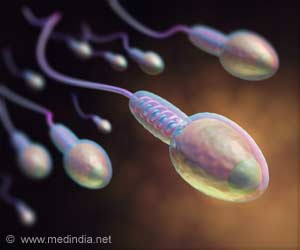Older dads are more likely to put the health of their partners and children at risk, reveals a new study.

‘Older dads are more likely to put the health of their partners and children at risk. Therefore, men who delay fatherhood should consult their doctor and consider banking sperm before age 35.’
Read More..




Men who delay fatherhood should consult their doctor and consider banking sperm before age 35, said the study which reviewed 40 years of research on the effect of parental age on fertility, pregnancy and the health of children. Read More..
"While it is widely accepted that physiological changes that occur in women after 35 can affect conception, pregnancy and the health of the child, most men do not realize their advanced age can have a similar impact," said Gloria Bachmann, Director of the Women's Health Institute at Rutgers University's Robert Wood Johnson Medical School.
The study found that men aged 45 and older can experience decreased fertility and put their partners at risk for increased pregnancy complications such as gestational diabetes, preeclampsia, and preterm birth.
Infants born to older fathers were found to be at higher risk of premature birth, late stillbirth, low birth weight, higher incidence of newborn seizures and birth defects such as congenital heart disease and cleft palate.
As they matured, these children were found to have an increased likelihood of childhood cancers, psychiatric and cognitive disorders, and autism.
Advertisement
"For example, just as people lose muscle strength, flexibility, and endurance with age, in men, sperm also tends to lose 'fitness' over the life cycle," she said.
Advertisement
"While women tend to be more aware and educated than men about their reproductive health, most men do not consult with physicians unless they have a medical or fertility issue," Bachmann said.
She recommended that physicians counsel older men as they do older women on the effect their age will have on conception, pregnancy and the health of their child.
Source-IANS










